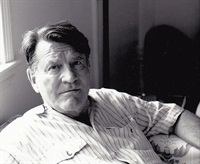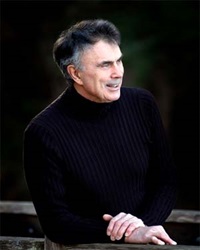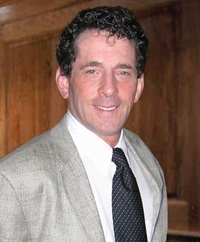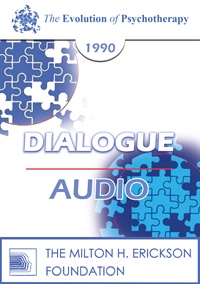EP90 Dialogue 10 - Trialogue: The Contributions of Milton H Erickson - Jay Haley, MA; Ernest Rossi, PhD; Jeffrey Zeig, PhD
- Average Rating:
- Not yet rated
- Topic Areas:
- Dialogues | Milton Erickson | Psychotherapy | Strategic Therapy
- Categories:
- Evolution of Psychotherapy | Evolution of Psychotherapy 1990 | Pioneers in Couples and Family Therapy
- Faculty:
- Jay Haley, MA | Ernest Rossi, PhD | Jeffrey Zeig, PhD
- Duration:
- 1 Hour 02 Minutes
- Format:
- Audio Only
- Original Program Date:
- Dec 15, 1990
- License:
- Never Expires.
Description
Description: This dialogue highlights Milton Erickson’s contributions to therapy, focusing on his use of indirect communication, subtle cues, and analogical thinking. The panelists reflect on his ability to engage patients, elicit cooperation, and access inner resources. Erickson's meticulous methods, field experiments, and personal challenges are also discussed as key influences on his therapeutic style.
Moderated by Camillo Loriedo, MD.
Educational Objectives:
- Given a topic, to become aware of the differing approaches to psychotherapy, and to identify the strengths and weaknesses in each approach.
*Sessions may be edited for content and to preserve confidentiality*
Credits
Handouts
| Timestamped Transcript (798.3 KB) | 17 Pages | Available after Purchase |
| Ericksonian Learning Snapshot (252 KB) | 2 Pages | Available after Purchase |
Faculty

Jay Haley, MA Related Seminars and Products
Jay Haley (M.A., 1953, Stanford University) was Director of Family Therapy Institute of Washington, D.C. He was one of the leading exponents of the strategic/interpersonal approach to family therapy. Haley served as Director of the Family Experiment Project at the Mental Research Institute and as Director of Family Therapy Research at the Philadelphia Child Guidance Clinic. He has authoered seven books, co-authored two and edited five. Additionally, he has more than 40 contributions to professional journals and books. Haley is the former editor of Family Process, and the first recipient of the Lifetime Achievement Award of The Milton H. Erickson Foundation.

Ernest Rossi, PhD Related Seminars and Products
Ernest L. Rossi, PhD, is an internationally renowned therapist, teacher and pioneer in the psychobiology of mind-body healing. The author of more than 24 professional books, Dr. Rossi worked with Milton Erickson for eight years and co-authored three classic volumes on therapeutic hypnosis with him. Rossi has also edited four volumes of Erickson's Collected Papers and four volumes of Erickson's Seminars, Workshops and Lectures. He has been conducting research in the psychosocial genomics of ultradian rhythms and their relation to mind-body healing and psychotherapy for over three decades.

Jeffrey Zeig, PhD Related Seminars and Products
Jeffrey K. Zeig, PhD, is the Founder and Director of the Milton H. Erickson Foundation and is president of Zeig, Tucker & Theisen, Inc., publishers in the behavioral sciences. He has edited, co-edited, authored or coauthored more than 20 books on psychotherapy that appear in twelve foreign languages. Dr. Zeig is a psychologist and marriage and family therapist in private practice in Phoenix, Arizona.


